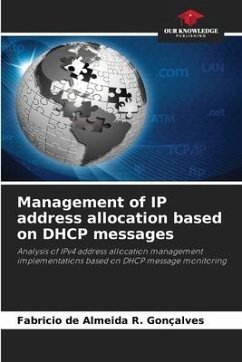As the importance of IP networks grows, so does concern about security and access control to the local area network environment. Problems include unauthorised configuration of static IP addresses by users, which can cause IP conflicts, misuse of computing resources and lack of traceability in cases of execution or attempted attacks. For IPv4 networks, one of the alternatives is the use of some methods of IP address assignment management control (GAEIP) based on the monitoring of DHCP messages on ethernet switches. The traffic of a station is authorized only if it is using dynamic IP address assigned by a DHCP server. This work evaluated three implementations, two commercial and one proprietary, with test procedures in four different typical topology organization scenarios. The evaluation showed that the use of GAEIP based on DHCP message monitoring is effective when all network equipments have the functionality active.
Bitte wählen Sie Ihr Anliegen aus.
Rechnungen
Retourenschein anfordern
Bestellstatus
Storno








